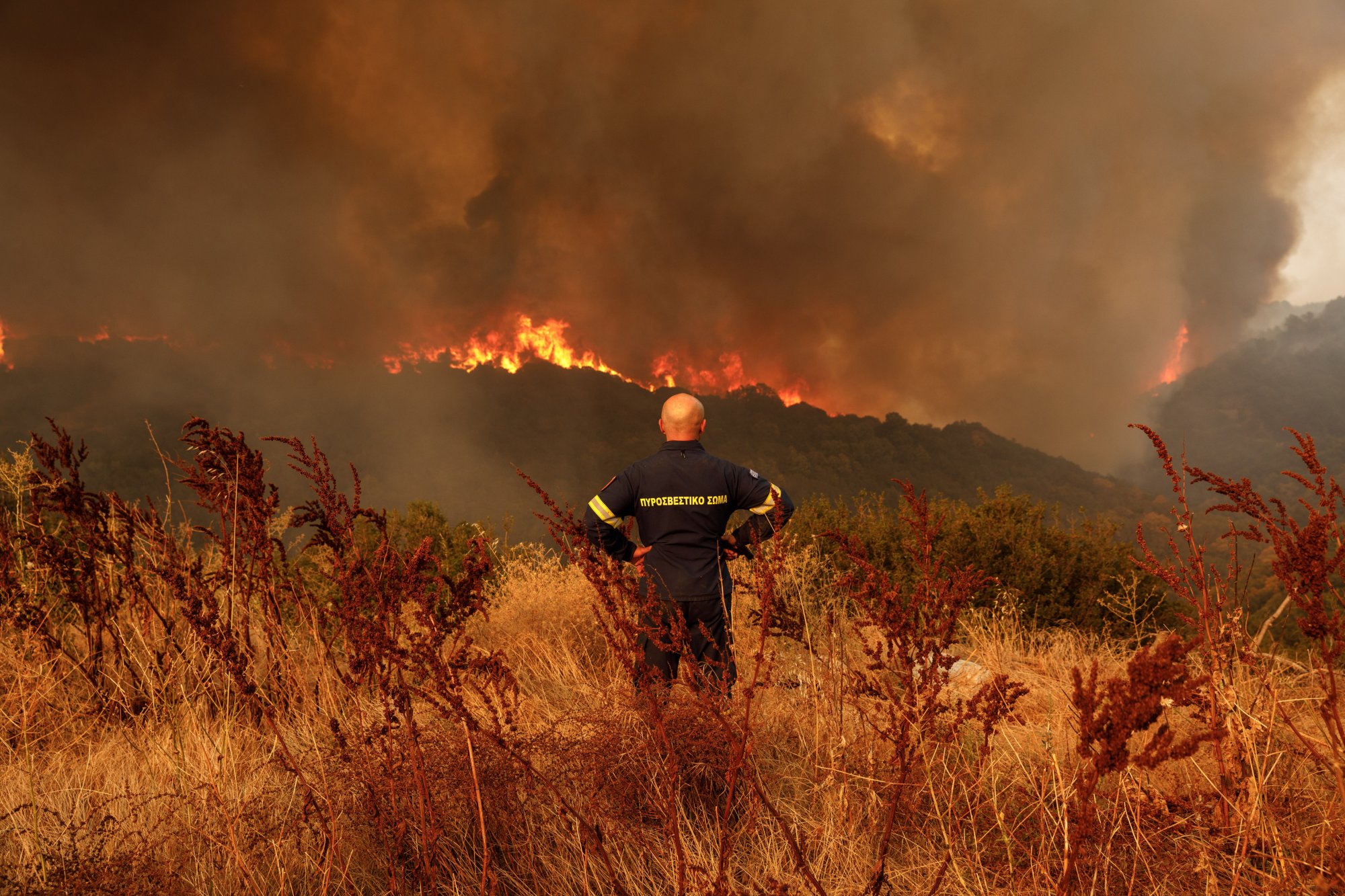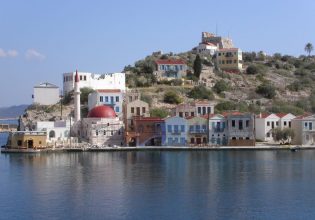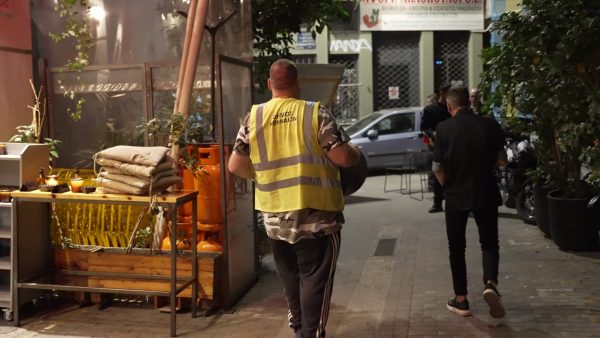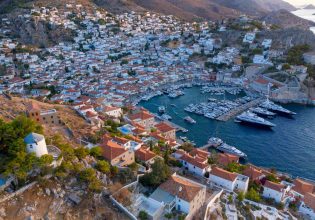
Dangerous cocktail of pollution and high temperatures are suffocating Greece
The Athens Medical Association draws attention to citizens and especially to those who belong to vulnerable groups
Spotlight
-

Στη φυλακή γνωστός δικηγόρος της Αθήνας για βιασμό ανηλίκων - «Είναι επικίνδυνος» λέει ένα από τα θύματα
-

Εφαρμογή της βίζας εξπρές για Tούρκους πολίτες και για τα 10 νησιά του Αιγαίου
-

Το ρομπότ Sophia έθεσε νέο… Κρητικό Ζήτημα – «Η Κρήτη θα μπορούσε να ήταν αυτόνομο κρατίδιο»
-

Τρόφιμα που δεν πρέπει ποτέ να μαγειρεύετε στη φριτέζα αέρος - Ειδικοί κρούουν τον κώδωνα του κινδύνου
The capital, as well as many other regions of the country, have turned into a gas “chamber”, since the black smoke from the devastating fires travels huge distances.
The pollution registered by the competent service of the Ministry of Environment and Energy (MEP) has exceeded the permissible limits in terms of health-hazardous microparticles (PM – particulate matter). The corresponding measurements by the scientists of the National Observatory of Athens are also moving at their peaks.
In particular, yesterday evening at 7 p.m. at the measurement stations of the Ministry of Health in Piraeus and Peristeri, the air quality was very poor with concentrations of PM10 (particles with a diameter of 10 microns) and PM2.5 (diameter of 2.5 microns) hitting red. In particular, in Piraeus PM10 reached 104 μg/m3 and in Peristeri 126 μg/m3 (micrograms of pollution per cubic meter of air). The situation was also bad in Elefsina and Aristotle station with PM2.5 values exceeding the limits.
It should be noted that for PM10, a value above the limit of 50 μg/m3 is tolerated, up to 35 times a year. As for PM2.5, the annual limit is 25 μg/m3.
The smaller the diameter of the particles in the atmosphere, the easier they penetrate the body through the respiratory system and settle very deep in the alveoli of the lung and from there they pass into the bloodstream and reach various organs of the body.
In fact, they are blamed for serious short- and long-term effects on human health. However, in addition to the size of suspended particles, their chemical composition also plays an important role in the effects they may have on health.
The burden on Western Attica and Piraeus is also evident from corresponding measurements of the Observatory, while particles traveled from the fires raging in the Evros to the Ionian islands. Especially for Attica, PM2.5 particle concentrations hovered for many hours above 100 µg/m3, as in Petroupoli, Chalandri, Ilion, Thisio and many other areas.
However, the smoke from the fire in Parnitha seems to have affected other areas as well, such as Nafpaktos, where PM2.5 levels reached 42.3 µg/m3 yesterday afternoon and 33.4 µg/m3 in Corinth. Correspondingly, Ioannina was affected by the fires in Evros where concentrations up to 28.9 μg/m3 were recorded.
And since air pollution knows no borders, smoke covered much of the Eastern Mediterranean yesterday. According to the Observatory’s online portal, the fires in Thrace are producing huge amounts of fine particles which have affected Southern Italy and Malta.
The weather conditions that prevail in the Central Mediterranean favor the sedimentation of gaseous masses and with them the microparticles, which are located very close to the ground.
Medical instructions from the AMA
The Athens Medical Association of Athens draws attention to the citizens and especially to those who belong to the vulnerable groups of the population and are close to areas affected by the fiery blaze. The high-risk group includes the chronically ill, the elderly, pregnant women, young children and those suffering from respiratory and cardiovascular diseases (asthma, COPD, etc.).
Respiratory problems can appear immediately upon the occurrence of a fire, in a short or long radius from the point of fire, which may persist depending on the state of health of citizens and people belonging to vulnerable groups, and may cause coughing, difficulty breathing, shortness of breath, asthma attack, stinging eyes, burning throat, runny nose, headaches, fatigue, chest pain and fast heart rate.
AMA recommends as precautionary measures:
· removal from the area. If one lives near the affected areas, it is advisable to keep the windows of one’s house closed, so as to limit the entry of smoke into interior spaces.
· whether someone is a chronic patient with respiratory problems or not, if symptoms such as shortness of breath, severe cough and increased sputum or dizziness occur, they should immediately contact their doctor.
· -avoidance of unnecessary movements. In the event that this is not possible, any movement must be done by car with closed windows, while the air conditioning must be in the internal air recirculation option.
· it is necessary to use a mask to protect against the toxic mixture of particles and gases, which is particularly dangerous.
· constant hydration of the body with water is required.
Ακολουθήστε το in.gr στο Google News και μάθετε πρώτοι όλες τις ειδήσεις













































 Αριθμός Πιστοποίησης Μ.Η.Τ.232442
Αριθμός Πιστοποίησης Μ.Η.Τ.232442